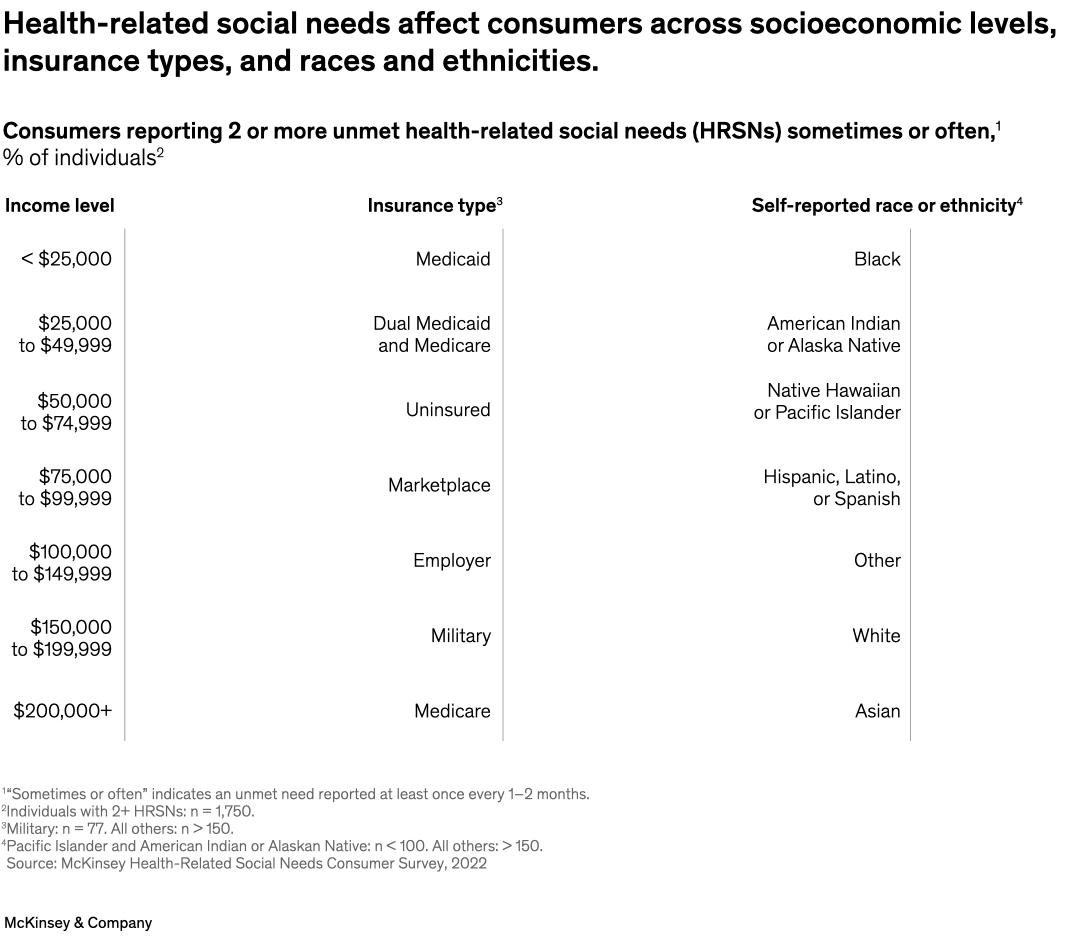Healthcare entities are seeking ways to address health-related social needs (HRSNs)—childcare and transportation, for example—which significantly affect health outcomes. A survey developed by senior partner Jordan VanLare and colleagues shows that unmet HRSNs are widespread but disproportionately affect certain groups. For example, while consumers with lower incomes reported a greater prevalence of unmet HRSNs, nearly one-third of consumers with incomes of $100,000 to $149,999 also reported unmet HRSNs. A review by race and ethnicity shows that some groups report being more heavily affected compared with others.

Image description:
Three sets of horizontal bar charts show the percentage of consumers reporting 2 or more unmet health-related social needs (HRSNs) sometimes or often. The first set of charts shows the percentage by income level, the second set shows by insurance type, and the third set shows by self-reported race or ethnicity. The most affected in each category are those in the lowest income bracket, those using Medicaid, and Black people.
Source: McKinsey Health-Related Social Needs Consumer Survey, 2022.
End of image description.
To read the article, see “Consumers’ perceptions of their health-related social needs,” November 14, 2023.